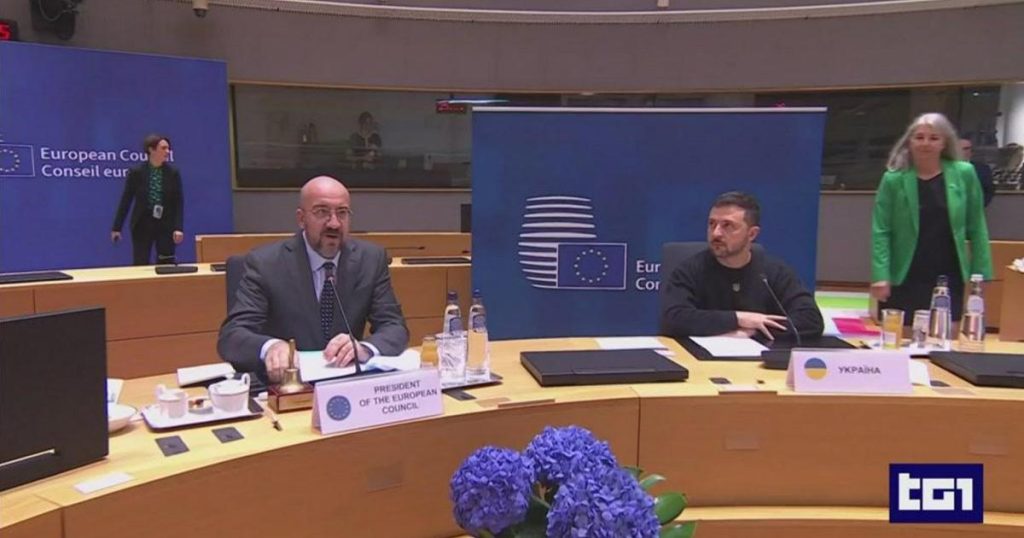In a recent proposal, the suggestion was made to immediately invite Ukraine to join NATO as a means of countering Russian aggression. This move would help to solidify Ukraine’s security and provide a stronger defense against potential threats from Russia. Additionally, the proposal includes the deployment of long-range weapons within Ukraine’s borders in order to better target and deter any Russian incursions. By having such weapons in place, Ukraine would be better equipped to defend itself and dissuade any aggressive actions from Russia. Furthermore, the proposal also calls for the presence of allied conventional troops on Ukrainian soil to bolster the country’s defenses and demonstrate international support for Ukraine in the face of Russian aggression.
The idea of inviting Ukraine to join NATO has significant implications for both Ukraine and the broader geopolitics of the region. By becoming a member of NATO, Ukraine would gain access to the collective security measures and support of the alliance, which could greatly enhance its ability to deter and defend against Russian aggression. This move would also serve as a deterrent to Russia, as any attack on Ukraine would be interpreted as an attack on NATO as a whole, potentially leading to a stronger response from the alliance. Additionally, the deployment of long-range weapons in Ukraine would provide a strategic advantage in terms of targeting Russian assets and forces, further deterring any potential aggression from Russia.
The presence of allied troops on Ukrainian soil would not only demonstrate international solidarity with Ukraine, but also serve as a practical means of bolstering the country’s defenses. By having allied troops present in Ukraine, the country would benefit from the expertise, training, and resources of NATO member states, helping to enhance Ukraine’s military capabilities and readiness. Moreover, the presence of allied troops would serve as a clear signal to Russia that any aggression towards Ukraine would be met with a united and resolute response from the international community. This show of force could potentially deter further Russian aggression and contribute to stability in the region.
However, there are potential drawbacks and challenges to the proposal as well. Inviting Ukraine to join NATO could provoke a strong reaction from Russia, potentially escalating tensions and leading to further conflict in the region. Russia has long been opposed to the expansion of NATO into its sphere of influence, and any move to bring Ukraine into the alliance could be viewed as a direct challenge to Russian interests. Additionally, the deployment of long-range weapons in Ukraine could be seen as a provocative act by Russia, potentially leading to a dangerous escalation of hostilities. The presence of allied troops on Ukrainian soil could also be seen as a violation of Russia’s security interests, further exacerbating tensions between the two countries.
Despite these challenges, the proposal to invite Ukraine to join NATO, deploy long-range weapons, and station allied troops in Ukraine represents a bold and proactive approach to addressing Russian aggression in the region. By strengthening Ukraine’s defenses and demonstrating international support for the country, this proposal has the potential to deter further Russian aggression and contribute to stability in Eastern Europe. However, careful consideration must be given to the potential consequences and risks involved in implementing such a proposal, as any misstep could lead to a dangerous escalation of tensions and further conflict in the region. Ultimately, the decision to pursue such a course of action should be made with a clear understanding of the potential benefits and risks involved.


